The memory tool being used in the first image is from Rider. As far as I'm aware, it shows allocations to the managed heap. The second image shows the results from BenchmarkDotNet.
Why does Rider show that an allocation was made, but BenchmarkDotNet indicates that no allocations to the heap were made?
If I instead use the below code sample, BenchmarkDotNet picks up the allocation:
var i = new int[0];

